FCC inquiry into Google, T-Mobile early termination fees for Nexus One, among others

In the last weeks of 2009, the Federal Communications Commission began a probe into Verizon Wireless' hiked early termination fees for "advanced wireless devices." The FCC was not exactly satisfied by Verizon Wireless' explanation of the fees, and said its inquiry would continue.
Today, the next stage of the investigation into early termination fees has begun. The FCC has extended to the questioning to T-Mobile, Sprint Nextel, AT&T, and Google in addition to Verizon Wireless, and the charge is now being led by the FCC's new Consumer Task Force.
Google Voice lands on iPhone as Web app: Conflict resolved?
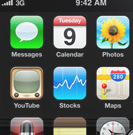
Google's revolutionary Internet phone, call management, and messaging service Google Voice has finally been reworked to fit within Apple's strict iPhone guidelines.
Last July, Google Voice was launched as a mobile application for BlackBerry and Android, but the popular iPhone platform was not included in the launch. Apple had apparently rejected Google's proposed app just like it had done weeks prior with Google's social geolocation service, Latitude.
Media manager doubleTwist becomes the official iTunes of Android...for T-Mobile

Today, the first major carrier of phones with Android support, T-Mobile, announced that doubleTwist media manager is now available across all of its Android smartphones, and that the music, video, and photo sync software can now be downloaded directly from T-Mobile for Windows XP and above and OS X 10.5 and above.
Users who come to the Android platform from iPhone frequently complain about Android's lack of desktop sync and the ability to create music playlists. In fact, the quality of the music ecosystem in general is one of the top ten complaints about the Android platform.
What happened to the Windows Mobile 6.5 SDK?
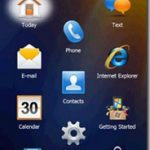
Late on Friday, Microsoft published the first Windows Mobile 6.5 software development kit, albeit with no announcement or fanfare. Since the operating system was released last October, the only toolkit for Windows Mobile 6.5 development was released as an add-on component to the Windows Mobile 6 SDK.
The SDK came with images for both "Professional" and "Standard" versions of Windows Mobile 6.5, also known as touch enabled, and non-touch enabled, and it reportedly also included support for the 6.5.3 update and widget development.
Open source mapping software meets the enterprise

The Open Planning Project (TOPP) is a nonprofit organization that advocates the use of free and open source software in the public sector, and for more than ten years, TOPP's OpenGeo initiative has worked on creating an open environment for sharing geospatial data. Its principal product, GeoServer, is a free Java-based Geographic Information server built on open standards which lets users share and edit public geographic data.
Following the GeoServer 2.0.1 update that was released last week, OpenGeo today released OpenGeo Suite Enterprise Edition 1.0, the complete package of open source mapping software that OpenGeo will professionally support.
Early LTE deployments are no faster than HSPA, says report
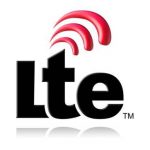
It appears that the United States isn't the only place where broadband performance in the real world is vastly different from the performance promised by carriers in advertisements.
Leading Scandinavian mobile network operator Teliasonera AB launched the first two commercial 4G wireless networks based on LTE in mid-December. On the company's Web site, the service is being billed as "10 times faster than 3G" with downlink speeds up 50 megabits per second.
Motorola strikes out against RIM for mobile patent infringement
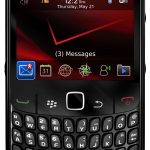
Mobile technology patents are golden, and the battles over intellectual property between major players in the mobile device space keep getting deeper. Today, Motorola filed a complaint with the US International Trade Commission, charging BlackBerry maker Research in Motion with patent infringement.
Motorola is asking the ITC to investigate RIM's alleged infringement of five patents on "early stage innovations" such as Wi-Fi access, user interfaces, and application and power management.
Apple tablet could give ARM the lion's share of UMPC architectures

Convergence in computing is an exciting trend to watch, and as our devices improve, they start to take on the characteristics of each other. Our mobile PCs are getting lighter, flatter, and more touchable with better perpetual connections; and our mobile phone screens are getting bigger, their processors are getting more powerful, and they're interacting with the many of the same services we use on our PCs.
Even if the mystery Apple product next week doesn't look exactly like a "big iPhone," the fact that many people already assume that's what it will be, is a sign of the strong current of convergence in consumer electronics.
Beta of Amazon Kindle SDK presents unique problems to software makers

If you're selling a broadband-connected device these days, it's almost required to have a platform for application development that goes along with it. The mobile phone space is overrun with different development options, heck, even networked printers have got one now.
Amazon is about to see if the Kindle e-book reader is a viable platform for third-party apps.
Windows Mobile 6.5 upgrades hit T-Mobile today

When Windows Mobile 6.5 launched four months ago Microsoft listed eight Windows Mobile 6.1 devices that would be upgradeable to 6.5. Unfortunately, at the time they were all listed as "date not yet available."
Today, T-Mobile announced that the Windows Mobile 6.5 upgrades are available now for the HTC Touch Pro2 and HTC Dash 3G (a.k.a., HTC Rhodium).
YouTube Rental 'beta' launches this Friday
In the official YouTube blog today, the popular Google-owned video sharing service announced it will be launching a streaming rental service on Friday in partnership with the Sundance Film Festival.
It will only include a handful of movies (five from Sundance 2009-2010, and "a small collection" from other US partners across different industries) that will be available to rent until Sunday, January 31.
Opera acquires AdMarvel, which is not an ad network

There are a lot of misconceptions this morning about Opera's acquisiton of AdMarvel today, which point to a fundamental misunderstanding about what exactly goes on in online and mobile advertising.
Many articles you'll find out there today say AdMarvel is an "ad network," but it simply is not. An ad network links ad publishers with Web sites, apps, feeds, SMS, MMS, video, and other potential places to advertise.
'Metered' Web news model = scrambled porn

To supplement the weak advertising dollar on both the print side and the Web side of the news business, media outlets have had to devise new methods of drawing revenue.
Today, The New York Times announced its own plans, which involve a "metered model" on its online content. In other words, users will be allowed to read a certain number of online articles for free, but then all further articles must be paid for.
Sprint on the wireless price war: We were already cheaper!

Last Friday, Verizon announced it was lowering the cost of its unlimited voice plans while simultaneously adding mandatory data plans for mid-range "media phones." Later in the day, AT&T announced it was lowering its unlimited voice plans by about $30, so the two companies could remain in close competition.
Today, Sprint issued a statement about its "Everything Data" plans, showing that its individual plans are about $20 cheaper than Verizon across the board, and that its 2-line family plans can be as much as $50 cheaper, depending upon the amount of minutes.
There's no quick end in sight to Nokia's patent fight with Apple
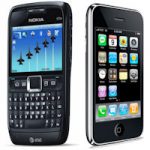
In October 2009, leading mobile phone maker Nokia sued Apple over the iPhone, claiming the company never fairly compensated Nokia for using its patents. Two months later, Apple countersued, claiming that a number of Nokia products violated Apple's own patents.
Then just over two weeks ago, Nokia fired back with more accusations, and cited Apple's culture of "stealing great ideas" to advance its own products, which extends well beyond the iPhone, and into all of Apple's products (PDF available here).
Tim's Bio
Tim Conneally was born into dumpster tech. His father was an ARPANET research pioneer and equipped his kids with discarded tech gear, second-hand musical instruments, and government issue foreign language instruction tapes. After years of building Frankenstein computers from rubbish and playing raucous music in clubs across the country (and briefly on MTV) Tim grew into an adult with deep, twisted roots and an eye on the future. He most passionately covers mobile technology, user interfaces and applications, the science and policy of the wireless world, and watching different technologies shrink and converge.
© 1998-2025 BetaNews, Inc. All Rights Reserved. About Us - Privacy Policy - Cookie Policy - Sitemap.
